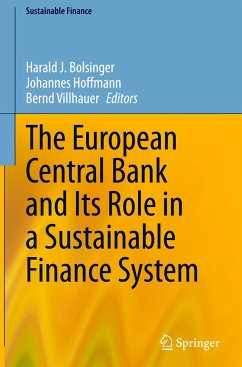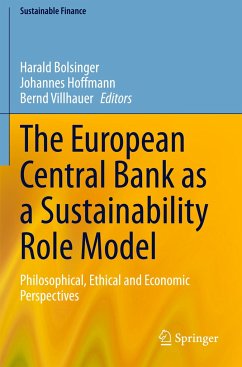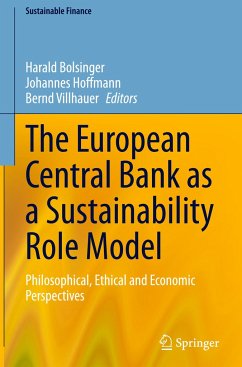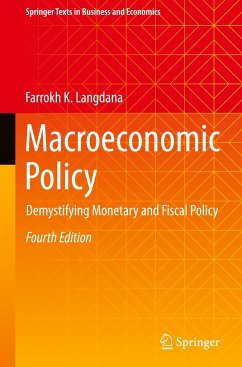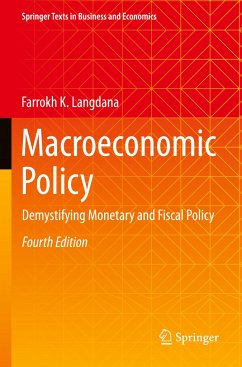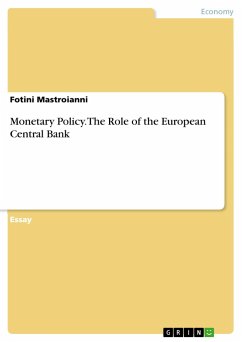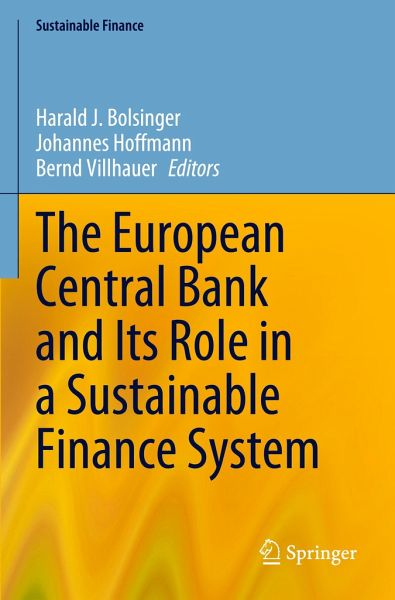
The European Central Bank and Its Role in a Sustainable Finance System
Versandkostenfrei!
Versandfertig in 6-10 Tagen
129,99 €
inkl. MwSt.

PAYBACK Punkte
65 °P sammeln!
This book analyses the new strategic decisions of the European Central Bank. Contributors from different fields examine especially the sustainability strategy of the ECB: What role can the European Central Bank play in fighting climate change? ECB President Christine Lagarde has repeatedly confirmed that the central bank wants to play a role in coping with climate change. What will this role be? What instruments does the ECB have to make a difference in challenges such as the defossilization of the economy and transport, biodiversity, the energy transition, resource consumption and other susta...
This book analyses the new strategic decisions of the European Central Bank. Contributors from different fields examine especially the sustainability strategy of the ECB: What role can the European Central Bank play in fighting climate change? ECB President Christine Lagarde has repeatedly confirmed that the central bank wants to play a role in coping with climate change. What will this role be? What instruments does the ECB have to make a difference in challenges such as the defossilization of the economy and transport, biodiversity, the energy transition, resource consumption and other sustainability areas? Is it entitled or obliged to go beyond the classic mandate of maintaining price stability?
The volume includes contributions from academics and practitioners from the financial sector, civil society and institutions involved at European level.
The volume includes contributions from academics and practitioners from the financial sector, civil society and institutions involved at European level.



